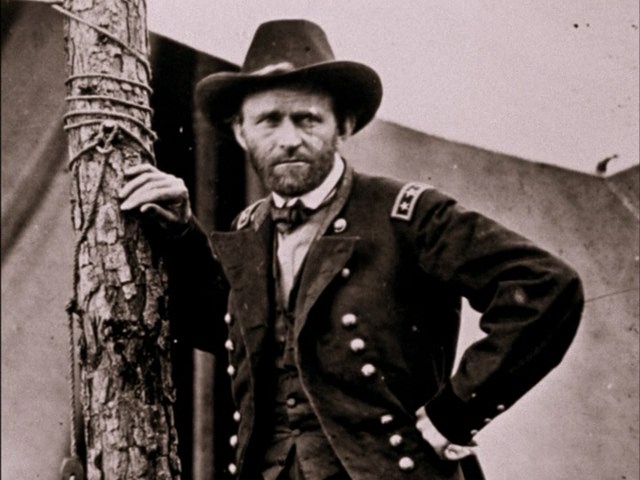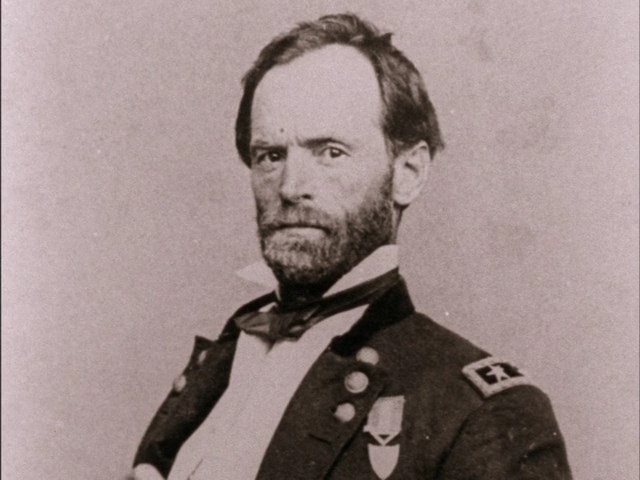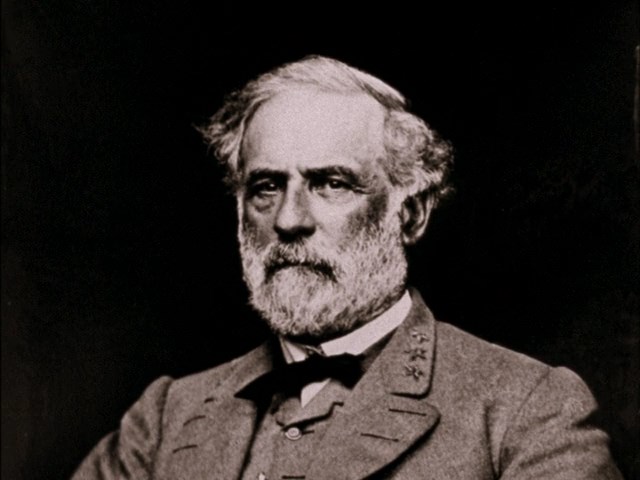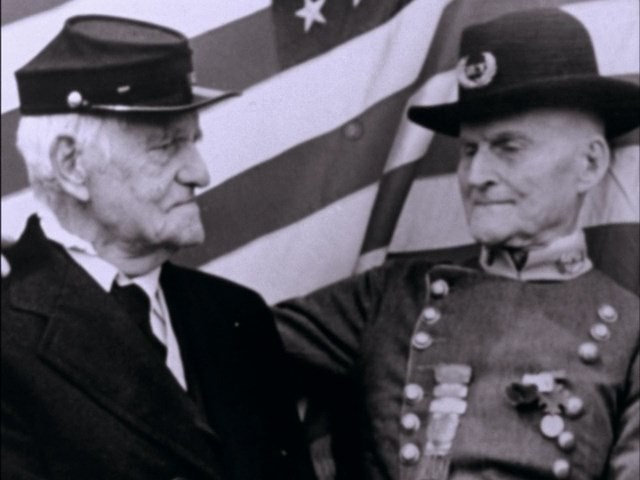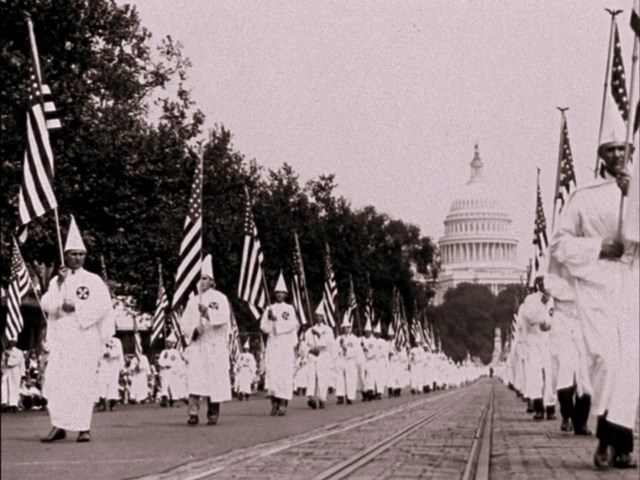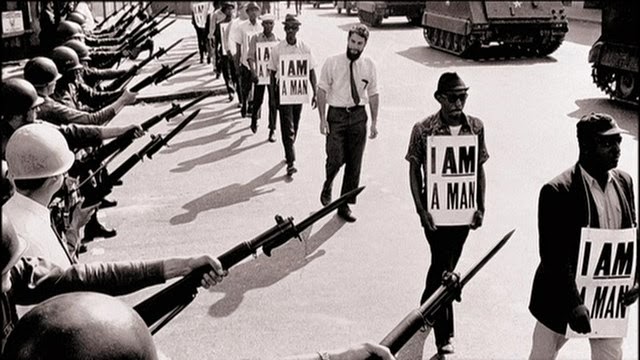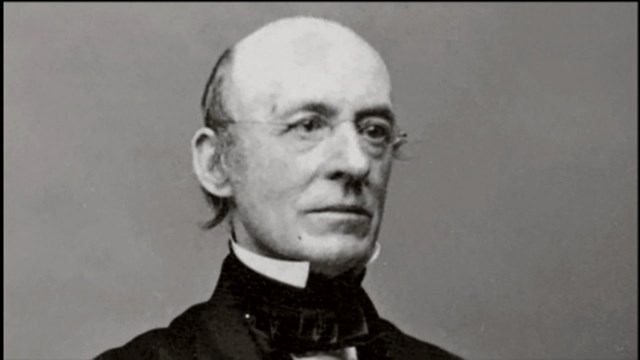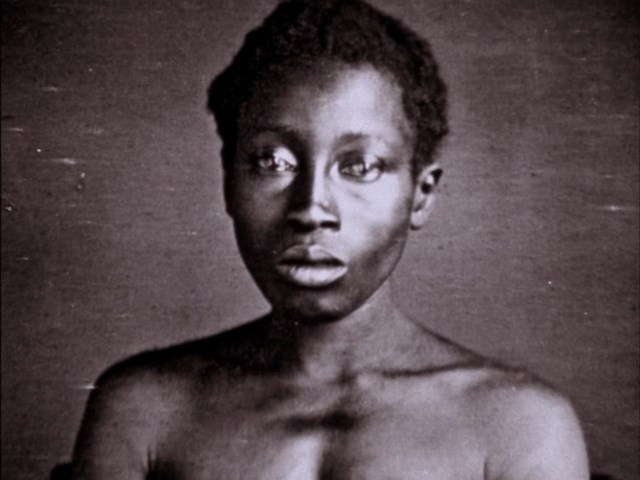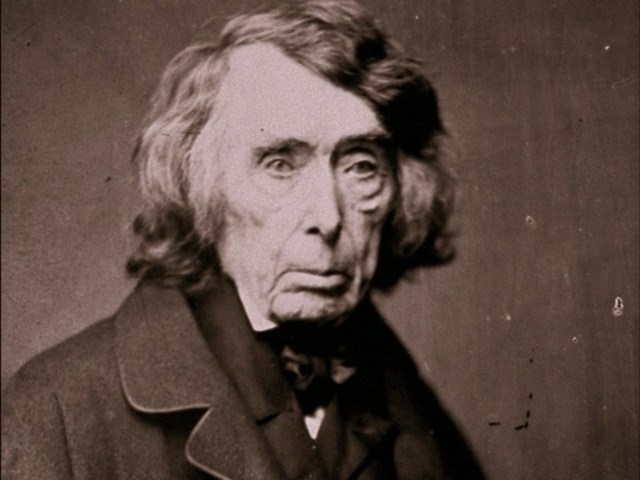Forever Free
[As of] the first day of January in the year of our Lord, one thousand eight hundred and sixty-three, all persons held as slaves within any State, or designated part of a State, the people whereof shall then be in rebellion against the United States shall be then, thenceforward, and forever, free …
— Abraham Lincoln (1809 – 65), The Emancipation Proclamation, 22 September 1862.
Fellow-citizens, we cannot escape history. …
The fiery trial through which we pass will light us down in honor or dishonor to the latest generation. …
In giving freedom to the slave … we shall nobly save, or meanly lose, the last best hope of earth.
— Abraham Lincoln (1809 – 65), State of the Union Address, 1 December 1862.
Neither slavery nor involuntary servitude … shall exist within the United States, or any place subject to their jurisdiction.
— Thirteenth Amendment, Section 1, United States Constitution, 18 December 1865.
Mine eyes have seen the glory of the coming of the Lord;
He is trampling out the vintage where the grapes of wrath are stored;
He hath loosed the fateful lightning of His terrible swift sword:
His truth is marching on.
— Julia Howe (1819 – 1910), Battle Hymn of the Republic, November 1861.
[Men] with hoses squirt kerosene on the oranges …
A million people hungry, needing the fruit and kerosene sprayed over the golden mountains. …
Burn corn to keep warm, it makes a hot fire.
Dump potatoes in the rivers and place guards along the banks to keep hungry people from fishing them out.
Slaughter the pigs and bury them …
[A crime] that goes beyond denunciation.
[A sorrow] that weeping cannot symbolize. …
[Children] dying of pellagra … because a profit cannot be taken from an orange. …
[And,] in the eyes of the hungry, there is a growing wrath.
In the souls of the people the grapes of wrath are filling and growing heavy, growing heavy for the vintage.
— John Steinbeck (1902 – 68), The Grapes of Wrath, 1939.
And that servant, which knew his lord's will, and prepared not himself, neither did according to his will, shall be beaten with many stripes.
— Luke 12:47, King James Bible, 1611.


(Sarah Colt, A Nation Reborn, PBS God in America, Episode 3, 2010)
 (Phillip Montgomery, Building the Economy, The American Presidency with Bill Clinton, Episode 3, 2022)
(Phillip Montgomery, Building the Economy, The American Presidency with Bill Clinton, Episode 3, 2022)
(Ken Burns, The Universe of Battle, The Civil War, Episode 5, 1990)
Abraham Lincoln (1809 – 65):
Fondly do we hope — fervently do we pray — that this mighty scourge of war may speedily pass away.
Yet, if God wills that it continue, until all the wealth piled by the bond-man's 250 years of unrequited toil shall be sunk, and until every drop of blood drawn with the lash, shall be paid by another drawn with the sword; as was said 3,000 years ago, so still it must be said:The judgments of the LORD are true and righteous altogether.
(Psalms 19:9)let us strive on:
- With malice toward none;
- with charity for all;
- with firmness in the right, as God gives us to see the right;
(Second Inaugural Address, 4 March 1865)
- to finish the work we are in;
- to bind up the nation's wounds;
- to care for him who shall have borne the battle, and for his widow, and his orphan;
- to do all which may achieve and cherish a just, and a lasting peace, among ourselves, and with all nations.
Four score and seven years ago our fathers brought forth on this continent, a new Nation, conceived in Liberty, and dedicated to the proposition that all men are created equal. …
The world will little note, nor long remember what we say here, but it can never forget what they did here.
It is for us the living, rather, to be dedicated here to the unfinished work which they who fought here have thus far so nobly advanced.
It is rather for us to be here dedicated to the great task remaining before us,(Soldiers' National Cemetery, Gettysburg, Pennsylvania, 19 November 1863)
- that from these honored dead we take increased devotion to that cause for which they gave the last full measure of devotion,
- that we here highly resolve that these dead shall not have died in vain,
- that this Nation, under God, shall have a new birth of freedom, and
- that government of the people, by the people, for the people, shall not perish from the earth.
Stephen Prothero [Professor of Religion, Boston University]:
God's righteous anger was called down upon the country.
God sent this horrible conflagration to punish us for the sin of slavery.
We deserve more punishment than we got, but Lincoln, like Christ, took the sin of slavery onto his own body and onto his own person.
James McPherson (1936):
[In May 1861, when several slaves] escaped to [General] Butler's lines at Fortress Monroe, Virginia [he labelled them] "contraband of war" and put them to work in his camp.
Northern newspapers picked up the "contraband of war" phrase, and thereafter the slaves who came into Union lines were known as contrabands. …
Many slaves not only confiscated themselves by coming into Union lines; they also confiscated mules and wagons and thereby "liberated" those items as well from slaveowners …
(Battle Cry of Freedom, 2nd Edition, Oxford University Press, 2003, pp 292 & 294)
Ulysses Grant (1822 – 85):
The fact is, I think I am a verb rather than a personal pronoun.
A verb is anything that signifies 'to be', 'to do' or 'to suffer'.
I signify all three.
(July 1885)
David Bradley (1950) [Writer]:
[Grant] was a very honourable man.
He was a principled human being.
He was a reasonable man in any unreasonable time.
(Elizabeth Deanne, Ulysses S Grant: The President, 2002)
James McPherson (1936):
[Grant was a] slouchy and unsoldier-like in appearance, of undistinguished family, a West Point graduate from the lower half of his class who had resigned from the army in disgrace for drunkenness in 1854 and had failed in several civilian occupations before volunteering his services to the Union in 1861. …
A man of no reputation and little apparent promise, Grant would rise to the rank of lieutenant general commanding all the Union armies and become the president of the United States.
(Battle Cry of Freedom, 2nd Edition, Oxford University Press, 2003, p 235)
[As] a Civil War General … he did more to shape the future of America than anyone else except Abraham Lincoln.
He earned a secure place as one of the great captains of history, and "unheroic" hero, in John Keegan's apt description.
(Drawn With The Sword: Reflections on the American Civil War, Oxford University Press, 1996, pp 172-3)
William Sherman (1820 – 91):
I am tired and sick of war.
Its glory is all moonshine.
It is only those who have neither fired a shot, nor heard the shrieks and groans of the wounded, who cry aloud for:War is hell.
- [more] blood,
- more vengeance, [and]
- more desolation.
(Alistair Cooke, America, 1973, Weidenfeld & Nicolson, 2003, pp 218-9)
Bao Ninh [North Vietnamese Army]:
In war, no one wins or loses.
There is only destruction.
Only those who have never fought like to argue about who won and who lost.
(Ken Burns & Lynn Novick, Déjà Vu, PBS The Vietnam War, Episode 1, 2017)
Robert Lee (1807 – 70) [General, Confederate Army of Northern Virginia, January 1865]:
[Slavery is] the best [relation] that can exist between the white and black races while intermingled as at present in this country.
(Alan Nolan, Lee Considered, Chapel, 1991, pp 10-21)
Bertrand Russell (1872 – 1970):
The institution of private property brings with it the subjection of women and, usually, the creation of a slave class.
(A History of Western Philosophy, 2nd Edition, 1961, p 35)
Aristotle (384 – 322 BCE):
It is clear, then, that some men are by nature free, and others slaves, and that for these latter slavery is both expedient and right. …
[It] is better for them, as for all inferiors, that they should be under the rule of a master. …
Indeed the use made of slaves and of tame animals is not very different. …
Again, the male is by nature superior, and the female inferior, and the one rules, and the other is ruled; this principle, of necessity, extends to all mankind.
(Politics)
Robert Hunter (1809 – 87) [Senator for Virginia]:
[There] is not a respectable system of civilization known to history whose foundations were not laid in the institution of domestic slavery.
(p 48)
Alexander Stephens (1812 – 83) [Vice-president, Confederate States of America]:
Our new government is founded upon … the great truth that the negro is not equal to the white man; that slavery … is his natural and normal condition.
(p 192)
Charles Carroll [Author, The Negro a Beast, American Book and Bible House]:
[The] Bible and Divine Revelation, as well as reason, all teach that the Negro is not human.
(Carl Sagan, Demon-Haunted World, 1997, p 343)
James McPherson (1936):
Slaveowners encouraged large families among their slaves, especially in upper-South states like Virginia, because slave children were a capital asset that could be realized when they grew up.
(Battle Cry of Freedom, 2nd Edition, Oxford University Press, 2003, p 32)
Rob Rapley:
In the late 1820s there were two million men, women, and children living in bondage in the United States.
David Blight (1949) [Historian]:
Slaves were the single largest financial asset in the entire American economy: worth more than all manufacturing, all railroad, steamship lines, and other transportation systems, put together.
Angelina Grimké (1805 – 79):
I stand before you as a Southerner, exiled from the land of my birth by the sound of the lash, and the piteous cry of the slave.
I stand before you as a repentant slaveholder.
I feel that I owe it to the suffering slave, and the deluded master, to do all that I can to overturn a system built up upon the bodies of my countrymen, and cemented by the blood and sweat and tears of my sisters in bonds.
(From Courage to Freedom, PBS The Abolitionists, Part 1, 2013)
James McPherson (1936):
[Only] a tiny minority [of Americans] owned as many [slaves (600) as Thomas Jefferson.]
[Fortunes like these,] based on slavery, were among the most concentrated of all.
Before 1865 the United States, land of liberty, was the largest slaveholding country in the world.
(Drawn With The Sword: Reflections on the American Civil War, Oxford University Press, 1996, p 63)
Cotton from the American South grown mostly by slave labor furnished three-fourths of the world's supply.
Southern staples provided three-fifths of all American exports, earning foreign exchange that played an important part in American economic growth.
(p 33)
John Mill (1806 – 73):
[The triumph of the Confederacy] would be a victory for the powers of evil which would give courage to the enemies of progress and damp the spirits of its friends all over the civilized world. …
[The American civil war] is destined to be a turning point, for good and evil, of the course of human affairs.
(p 219)
Union Officer [New England, 1861):
I know … how great a debt we owe to to those who went before us through the blood and sufferings of the Revolution. …
I am willing — perfectly willing — to lay down all my joys in this life, to help maintain this government, and to pay that debt.
(James McPhersen, Battle Cry of Freedom, 2nd Edition, Oxford University Press, 2003, p 249)
Thomas Jefferson (1743-1826):
We hold these truths to be self-evident,
- that all [white] men are created equal,
- that they are endowed by their Creator with certain inalienable Rights,
- that among these are Life, Liberty and the Pursuit of Happiness; [and]
- that to secure these rights, Governments are instituted among Men, deriving their just powers from the consent of the governed.
Frederick Douglass (1818 – 95):
It may be the blood of our beloved martyred President will be the salvation of our country.
Though Abraham Lincoln dies, the Republic lives.
(Sarah Colt, A Nation Reborn, PBS God in America, Episode 3, 2010)
Hugh Auld [Frederick's owner]:
A nigger should know nothing but to obey his master …
[If] you teach that nigger how to read, there would be no keeping him.
It would forever unfit him to be a slave.
(Carl Sagan, Demon Haunted World, 1997, p 334)
Andrew Johnson (1808 – 75) [17th President of the United States]:
I know that damn Douglass.
He's like any other nigger.
He would sooner cut a white man's throat than not.
Frederick Douglass (1818 – 95):
We are not fighting for the old union as it was, but for something 10,000 times more important.
And that thing, crisply rendered, is national unity.
A unity of which the great principles of liberty and equality, and not slavery and class superiority, are the cornerstone.
… I do not despair of this country.
The doom of slavery is certain, and I therefore leave off where I began.
With hope.
Why does the government reject the negro?
Is he not a man? …
[Those who] would be free themselves, must strike the blow.
(Reinaldo Green & Kenny Leon, Citizen, Amend: The Fight for America, Episode 1, 2021)
Ainissa Ramirez:
[Frederic Douglass] gave hundreds of speeches in the US and the UK on the plight of slaves, which he knew from experience. …
[When] he had no speaking engagements, he would frequently go to a photography studio to have his handsome face captured and let his image do the talking for him …
By the middle of the 19th century [he] was the most photographed human being on the planet.
There were more pictures of him than Twain or Grant or even Lincoln. …
With the laws of the land saying that a slave was three-fifths a person, Douglass sought to show human beings, black human beings, at their best.
He hoped that whites would see his image as their reflection.
While his skin was black, his features were European, since he was of mixed [birth:] his nose was Anglo-Saxon, his stance was regal, and his posture was powerful. …
[He] wanted to use images to counter the black sterotypes found in the newspapers and magazines of exaggerated facial features of sambos …
(The Alchemy of Us, pp 105-6, 2021)
Frederick Douglass (1818 – 95) [Eulogy to William Garrison, 1805 – 79]:
Now, the brightest and steadiest of all the shining hosts of our moral sky has silently and peacefully descended below the distant horizon.
He moved not with the tide, but against it.
He rose not by the power of the Church or the State, but in bold, inflexible and defiant opposition to the mighty power of both.
It was the glory of this man that he could stand alone with the truth, and calmly await the result.
Now that this man has filled up the measure of his years.
Now that the leaf has fallen to the ground — as all leaves must fall — let us guard his memory.
Let us try to imitate his virtues, and endeavor, as he did, to leave the world freer, nobler, and better than we found it.
(Rob Rapley, Before Brother Fought Brother, PBS The Abolitionists, Part 3, 2013)
Harriet Tubman (born Araminta Ross, c 1822 – 1913) was an American abolitionist and political activist.
Born into slavery, Tubman escaped and subsequently made some 13 missions to rescue approximately 70 enslaved people, including family and friends, using the network of antislavery activists and safe houses known as the Underground Railroad.
During the American Civil War, she served as an armed scout and spy for the Union Army.
In her later years, Tubman was an activist in the movement for women's suffrage.
(Wikipedia, 27 April 2021)
Roger Taney (1777 – 1864)
Chief Justice of the US Supreme Court (1836 – 64)
In the opinion of the court, the legislation and histories of the times, and the language used in the Declaration of Independence, show, that neither the class of persons who had been imported as slaves, nor their descendants, whether they had become free or not, were then acknowledged as a part of the people, nor intended to be included in the general words used in that memorable instrument. …
They had for more than a century before been regarded as beings of an inferior order, and altogether unfit to associate with the white race, either in social or political relations; and so far inferior,
- that they had no rights which the white man was bound to respect; and
- that the negro might justly and lawfully be reduced to slavery for his benefit.
This opinion was at that time fixed and universal in the civilized portion of the white race. …
[The framers of the Declaration, and later the Constitution,] knew that it would not in any part of the civilized world be supposed to embrace the negro race, which, by common consent, had been excluded from civilized Governments and the family of nations, and doomed to slavery. …
The unhappy black race were separated from the white by indelible marks, and laws long before established, and were never thought of or spoken of except as property, and when the claims of the owner or the profit of the trader were supposed to need protection. …
No one of that race had ever migrated to the United States voluntarily; all of them had been brought here as articles of merchandise.
The number that had been emancipated at that time were but few in comparison with those held in slavery; and they were identified in the public mind with the race to which they belonged, and regarded as a part of the slave population rather than the free. …
[It is, therefore,] impossible to believe that these [constitutional] rights and privileges were intended to be extended to them.
(Dred Scott v Sandford, 60 US 393, 1857)
Sullivan Ballou (1829 – 61)
[Dear] Sarah,
The indications are very strong that we shall move in a few days — perhaps tomorrow.
[And lest] I should not be able to write you again, I feel impelled to write lines that may fall under your eye when I [am] no more. …
I have no misgivings about, or lack of confidence in the cause in which I am engaged, and my courage does not halt or falter.
I know how strongly American Civilization now leans upon the triumph of the Government, and how great a debt we owe to those who went before us through the blood and suffering of the Revolution.
And I am willing — perfectly willing — to lay down all my joys in this life, to help maintain this Government, and to pay that debt. …
Sarah, my love for you is deathless, it seems to bind me … with mighty cables that nothing but Omnipotence [can] break; and yet my love of Country comes over me like a strong wind and bears me irresistibly … with all [those] chains to the battlefield.
The [memory of all] the blissful moments I have [enjoyed] with you come [crowding] over me, and I feel most [deeply grateful] to God, and … you, that I have enjoyed them so long.
And [how] hard it is for me to give them up and burn to ashes the hopes of future years; when, God willing, we might still have lived and loved together and [see] our sons grow up to honorable manhood around us. …
If I do not [return,] my dear Sarah, never forget how much I [loved] you, [nor that] when my last breath escapes me on the battlefield, it will whisper your name.
Forgive my many faults, and the many pains I have caused you.
How thoughtless, [how] foolish I have [sometimes] been! …
But, O Sarah!
If the dead can come back to this earth and flit unseen around those they [love,] I shall always be [with] you in the brightest day and … the darkest night … always, always.
[And when the] soft breeze [fans] your cheek, it shall be my breath; or the cool air … your throbbing temple, it shall be my spirit passing by.
Sarah, do not mourn me dead; think I am gone and wait for me, for we shall meet again.
(14 July 1861)
James McPherson (1936)
The institutions and ideology of a plantation society and a caste system that had dominated half of the country before 1861 and sought to dominate more went down with a great crash in 1865 and were replaced by the institutions and ideology of free-labor entrepreneurial capitalism.
For better or for worse, the flames of Civil War forged the framework of modern America.
(p 64)
So even if the veneer of romance and myth [surrounding the Civil War] were stripped away, leaving only the trauma of violence and suffering, [it] would remain the most dramatic and crucial experience in American history.
(p 65)
Whether or not they owned productive property, all Southern whites owned the most important property of all — a white skin.
This enabled them to stand above the mudsill of black slavery and prevented them from sinking into the morass of inequality, as did wage workers and poor men in the North.
John C Calhoun expressed it well:
With us … the two great divisions of society are not the rich and poor, but white and black; and all the former, the poor as well as the rich, belong to the upper class, and are respected and treated as equals.Because the slave system was "of all others the best adapted to the freedom and equality of the whites," a South Carolina newspaper editor said, the election of Lincoln presented a mortal threat to the liberty of Southern yeomen.
(US Senate, 1848)
If slaves are freed, whites will become menials," an up-country politician added:
We will lose every right and every liberty which belongs to the name of freemen.Indeed, the Baptist clergyman James Furman warned after Lincoln's election,
If you are tame enough to submit, Abolition preachers will be at hand to consummate the marriage of your daughters to black husbands.
Little wonder, then, that "the common people" of South Carolina, as a contemporary observer put it, were "the most resolute" opponents of "Northern aggression."
With the slogan "Freedom is not possible without slavery" ringing in their cars, they went to war against the Yankees alongside their slave-owning neighbors to "perpetuate and diffuse the very liberty for which Washington bled, and which the heroes of the Revolution achieved."
(p 50)
George Orwell need not have created the fictional world of 1984 to describe Newspeak.
He could have found it in the South Carolina of 1861.
(p 51)
Fully one-quarter of the white men of military age in the Confederacy lost their lives. …
Altogether nearly 4% of the Southern people, black and white, civilians and soldiers, died as a consequence of the war.
This percentage exceeded the human cost of any country in World War I and was outstripped only by the region between the Rhine and the Volga in World War II.
The amount of property and resources destroyed in the Confederate States … has been estimated at two-thirds of all assessed wealth, including the market value of slaves.
(p 66)
With complete sincerity the South fought to preserve its version of the republic of the Founding Fathers — a government of limited powers that protected the rights of property, including slave property, and whose constituency comprised an independent gentry and yeomanry of the white race undisturbed by:
- large cities,
- heartless factories,
- restless free workers, and
- class conflict.
(p 22)
The fear that slavery was being hemmed in and threatened with destruction contributed to the defensive-aggressive style of [antebellum] Southern political behavior. …
Southern whites were more likely to carry weapons and to use them against other human beings than Northerners were.
The homicide rate was higher in the South.
The phenomenon of dueling persisted longer there.
Bertram Wyatt-Brown attributes this to the Southern code of honor based on traditional patriarchal values of courtesy, status, courage, family, and the symbiosis of shame and pride.
The enforcement of order through the threat and practice of violence also resulted from the felt need to control a large slave population.
Martial values and practices were more pervasive in the South than in the North.
(p 16)
[The quasi-military] slave patrol … gave tens of thousands of Southern whites a more practical form of military experience than the often ceremonial functions of volunteer drill companies [in the North] could do. …
(p 17)
A study of the occupations of antebellum men chronicled in the Dictionary of American Biography found that the military profession claimed twice the percentage of Southerners as of Northerners, while this ratio was reversed for men distinguished in literature, art, medicine, and education.
In business the per capita proportion of Yankees was three times as great, and among engineers and inventors it was six times as large.
When Southerners labeled themselves a nation of warriors and Yankees a nation of shopkeepers … they were not just whistling Dixie.
(p 18)
The proportion of illiterate white people was three times greater in the South than in the North. …
In the free states [there was] a commitment to education as an instrument of social mobility, economic prosperity, progress, and freedom.
While this ["ideology of literacy"] also existed in the South … it was much weaker there and made slow headway against the inertia of a rural folk culture.
(p 19)
The ideology of literacy in the North was part of a larger ferment which produced an astonishing number of reform movements that aroused both contempt and fear in the South.
Southern whites viewed the most dynamic of these movements — abolitionism — as a threat to their very existence.
Southerners came to distrust the whole concept of "progress" as it seemed to be understood in the North. …
A Richmond newspaper warned in 1855 that Southerners must stop reading Northern newspapers and books and stop sending their sons to colleges in the North, where: …
[Our unwary youth are] exposed to the danger of imbibing doctrines subversive of all old institutions.(p 20)
[They should instead be educated in the South] where their training would be moral, religious, and conservative, and they would never learn, or read a word in school or out of school, inconsistent with orthodox Christianity, pure morality, the right of property, and sacredness of marriage.
Texas Republican Party Platform:
[We oppose] the teaching of … critical thinking skills and similar programs that … have the purpose of challenging student's fixed beliefs and undermining parental authority.
(Scientific American, November 2012, p 57)
(Drawn With The Sword: Reflections on the American Civil War, Oxford University Press, 1996)
Thomas Piketty (1971)
The total number of slaves on Euro-American plantations in the Atlantic region [peaked at] 6 million in 1860 (4 million of whom were in the southern United States, 1.6 million in Brazil, and 0.4 million in Cuba). …
[The] 4 million slaves exploited in the southern United States on the eve of the Civil War (1861–1865) constituted the largest concentration of slaves that ever existed. …
[The] market value of all slaves exceeded the value of all other private property (land, buildings, and equipment). …
[Politically,] the number of slaves played a key role in determining the number of seats assigned to each state in the House of Representatives and therefore the number of members of the Electoral College, which chooses the president: each slave counted for three-fifths of a free person. …
Of the fifteen presidents who served prior to the election of the Republican Abraham Lincoln in 1860, no fewer than eleven were slaveowners. …
In the 1850s, on the eve of the American Civil War, 75 percent of the cotton imported by European textile factories came from the southern United States.
[It] was this “empire of cotton,” intimately associated with slave plantations, that was the heart of the Industrial Revolution and more generally of the economic domination of Europe and the United States.
(Capital and Ideology, 2019)
[The] southern slave owners … controlled more wealth than the landlords of old Europe.
Their farmland was not worth very much, but since they had the bright idea of owning not just the land but also the labor force needed to work that land, their total capital was even greater.
[It] is the mark of a civilization in which some people were treated as chattel rather than as individuals endowed with rights …
(p 159)
Attributing a monetary value to the stock of human capital makes sense only in societies where it is actually possible to own other individuals fully and entirely …
(p 163)
[The] New World combined two diametrically opposed realities.
- In the North we find a relatively egalitarian society in which capital was indeed not worth very much, because land was so abundant that anyone could became a landowner relatively cheaply …
- In the South we find a world where inequalities of ownership took the most extreme and violent form possible, since one half of the population owned the other half: here, slave capital largely supplanted and surpassed landed capital. …
This complex and contradictory relation to inequality largely persists in the United States to this day:
- on the one hand — [it] is a country of egalitarian promise, a land of opportunity for millions of immigrants of modest background; [and]
- on the other [—] it is a land of extremely brutal inequality, especially in relation to race, whose effects are still quite visible. …
(p 160)
[Income] support programs in the United States have always been reserved for people with children.
For childless individuals, the carceral state sometimes does the job of the welfare state (especially for young black males).
About 1% of the adult US population was behind bars in 2013.
This is the highest rate of incarceration in the world (slightly ahead of Russia and far ahead of China).
The incarceration rate is more than 5% for adult black males (of all ages).
(p 630, Note 17)
(Capital in the Twenty-First Century, Arthur Goldhammer, Translator, Harvard University Press, 2014)
Alexis de Tocqueville (1805 – 59)
[The Anglo-Americans] conceive an overweening opinion of their superiority, and they not very remote from believing themselves to belong to a distinct race of mankind.
(p 457)
[Of the] widely differing families of men [to be found in the American Union,] the first which attracts attention, the superior in intelligence, in power and in enjoyment, is the white or European, the man preeminent; and in subordinate grades, the Negro and the Indian. …
[We] should almost say that the European is to the other races of mankind what man is to the lower animals;— he makes them subservient to his use; and when he cannot subdue, he destroys them.
(p 385)
… I reserve my execration for those who, after a thousand years of freedom, brought back slavery into the world once more.
(p 441)
In 1830 there were in the United state 2,010,327 slaves and 319,439 free blacks, in all 2,329,755 negroes: which formed about one-fifth of the total population of the United states at that time.
(p 438)
[The situation of the emancipated negroes] with regard to the Europeans is not unlike that of the aborigines of America …
[They] remain half civilized and deprived of their rights in the midst of a population which is far superior to them in wealth and in knowledge, where they are exposed to the tyranny of the laws and the intolerance of the people. …
There is a very great difference between the mortality of blacks and of the whites in the States in which slavery is abolished …
[From] 1829 to 1831 only one out of forty-two individuals of the white population died in Philadelphia: but one negro out of twenty-one of the black population died in the same space of time.
The mortality is by no means so great amongst the negroes who are still slaves.
(p 426)
The negro makes a thousand fruitless efforts to insinuate himself amongst men who repulse him; he conforms to the tastes of his oppressors, adopts their opinions, and hopes by imitating them to form a part of their community.
Having been told from infancy that his race is naturally inferior to that of the whites, he assents to the proposition and is ashamed of his own nature.
(p 387)
I do not imagine that the white and black races will ever live in any country upon an equal footing.
(p 432)
Slavery … introduces idleness into society, and with idleness, ignorance and pride, luxury and distress.
It enervates the powers of the mind, and benumbs the activity of man.
The influence of slavery … explains the manners and social condition of the Southern States [of the Union.]
(p 33)
The inhabitants of the South … are induced to support the Union in order to avail themselves of its protection against the blacks …
(p 455)
(Democracy in America, 1835)

